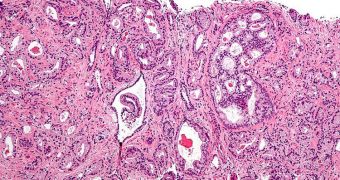A group of researchers at the Norwegian Radium Hospital, in Oslo, announce the development of a new imaging method, which non-invasively studies the interstitial fluid pressure of solid tumors, helping doctors determine whether the cancer is aggressive or not.
This is all valuable information for experts trying to determine the best course of action for treating individual patients. The one-size-fits-all approach does not work when it comes to addressing cancer.
In a paper published in a recent issue of the American Association for Cancer Research's esteemed journal Cancer Research, the Norwegian team explains that malignant solid tumors differ from benign ones through displaying a higher interstitial fluid pressure (IFP).
This high pressure is making it more difficult for the diseased cell to take up the chemotherapeutic agents circulating in the blood stream, while at the same time making it more difficult for it to respond to radiotherapy. What's more, high IFP has been tied to promoting cancer metastasis.
“Currently, an imaging method for noninvasive assessment of the IFP of tumors is needed to evaluate the potential of IFP as a biomarker for cancer aggressiveness and, hence, to identify patients with cancer who may benefit from particularly aggressive treatment because of highly elevated tumor IFP,” Einar K. Rofstad, PhD, says.
The expert holds an appointment with the NRH Institute for Cancer Research (ICR) Department of Radiation Biology. The new approach is called dynamic contrast-enhanced magnetic resonance imaging (dceMRI).
What it does is create a map showing the velocity of fluids emanating from cancer cells implanted in mice. The speed at which materials are exchanged from tumor tissue to adjacent tissue is largely determined by a drop in IFP at the surface of cancer cells.
“Our findings establish that [gadolinium diethylene-triamine penta-acetic acid] Gd-DTPA-based dynamic contrast-enhanced MRI can non-invasively visualize tumor IFP,” Rofstad explains.
“This reveals the potential for the fluid-flow velocity at the tumor surface determined by this imaging method to serve as a novel general biomarker of tumor aggressiveness,” he concludes.

 14 DAY TRIAL //
14 DAY TRIAL //